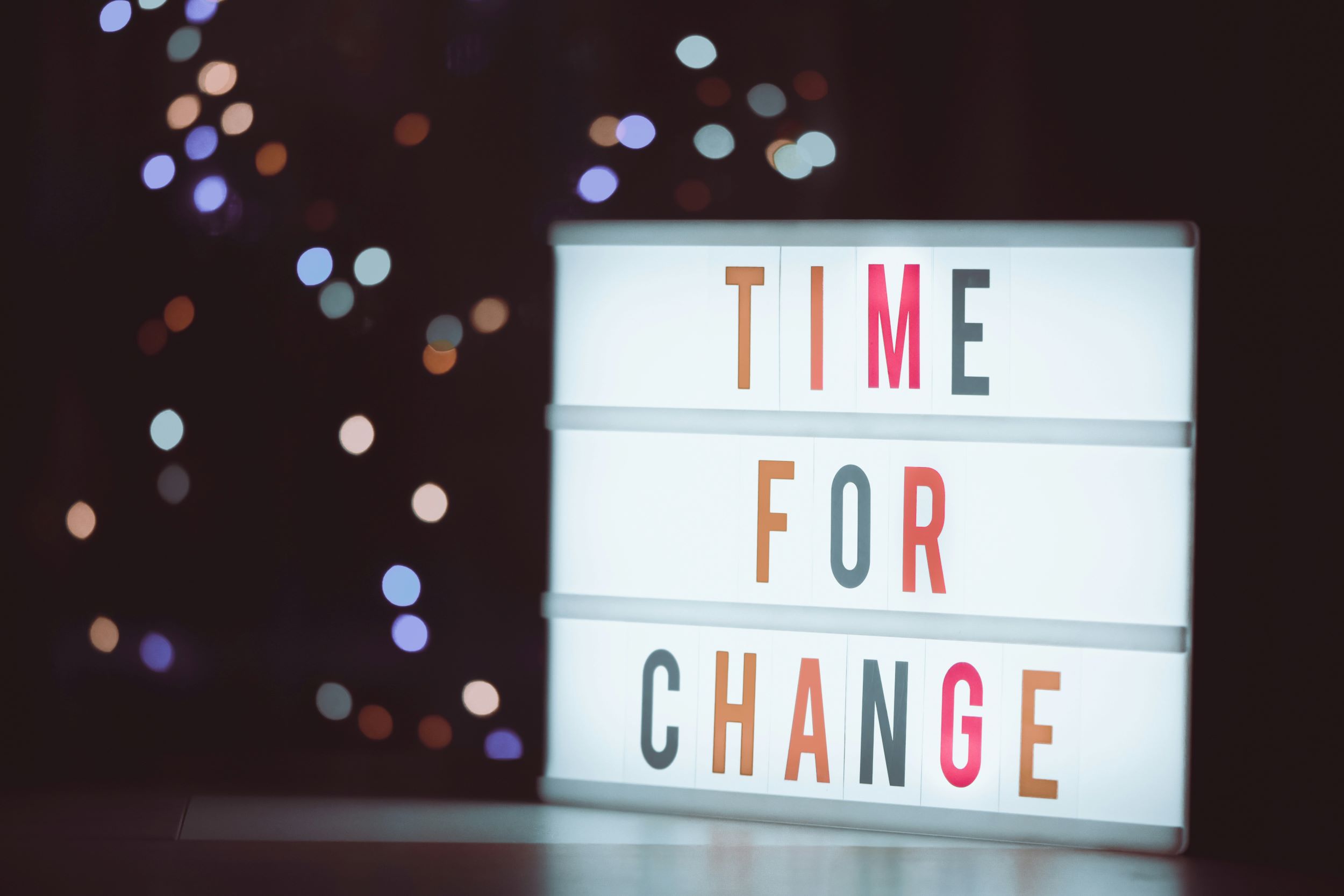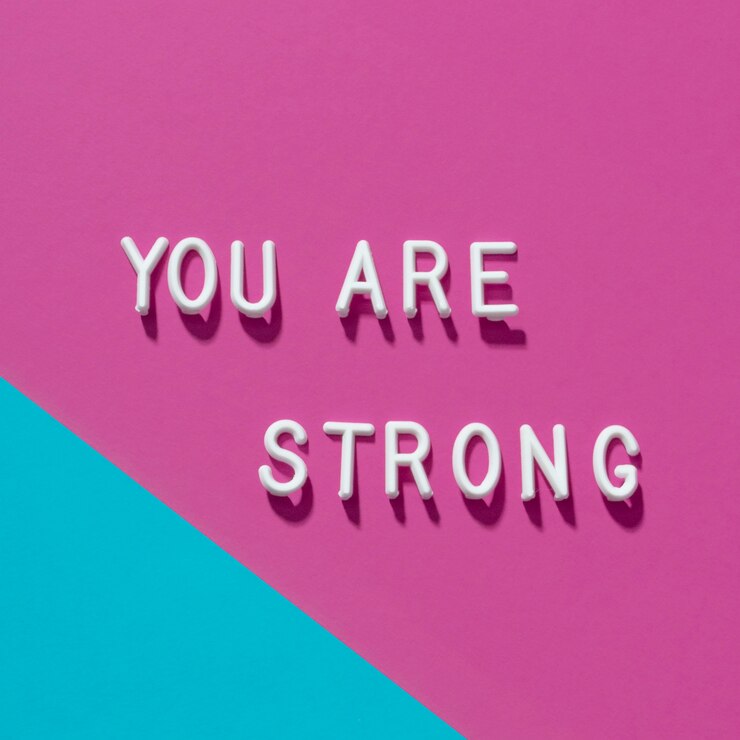Self trust affirmations: Rebuild your relationship with yourself
Remember when you were little and you made promises to yourself? “I’m going to clean my room every day.” “I’m going to practice piano for an hour.” “I’m going to save my allowance for that toy I really want.”
Back then, breaking those promises to yourself felt disappointing, but it didn’t feel devastating. You’d just make a new promise and try again.
But somewhere along the way, something shifted. Now when you don’t follow through on what you tell yourself you’ll do, it doesn’t just feel disappointing – it feels like proof. Proof that you can’t be trusted. Proof that you’re not reliable. Proof that maybe you’re just not the kind of person who does what they say they’ll do.
Self trust isn’t something you either have or don’t have. It’s something you build, break, and rebuild over and over again.
And if you’ve broken it, you can absolutely build it back.
The trust account: How self trust actually works
Think of self trust like a bank account. Every time you keep a promise to yourself, you make a deposit. Every time you break one, you make a withdrawal.
Most people with low self trust have been making withdrawals for years without realizing it. They’re constantly overdrawing their account, then wondering why they don’t trust themselves with anything important.
But here’s the good news – you can rebuild your balance. You just have to start making more deposits than withdrawals.
What counts as a deposit?
- Getting up when your alarm goes off.
- Drinking more water like you said you will.
- Taking the walk you committed to.
- Keeping your phone in another room when you said you’d focus.
- Going to bed at the time you set for yourself.
What counts as a withdrawal?
- Making dramatic promises you can’t keep.
- Saying you’ll change everything starting tomorrow.
- Committing to things you don’t really want to do.
- Breaking promises to yourself repeatedly without addressing why.

The self trust rebuild plan: Four phases of recovery
Phase 1: The honesty phase
Before you can rebuild trust, you have to stop breaking it. This means getting honest about what you can and can’t commit to right now.
Your phase 1 affirmations:
- I am honest with myself about what I can actually commit to.
- I stop making promises I don’t intend to keep.
- I honor where I am right now instead of where I think I should be.
- I choose realistic commitments over impressive ones.
- I respect myself enough to start small.
Phase 1 action: For one week, make zero new promises to yourself. Just observe how often you break the commitments you’ve already made. Don’t judge it – just notice it.
Phase 2: The evidence phase
Now you start rebuilding with the smallest possible commitments. Think embarrassingly small. If getting up at 6 AM feels hard, commit to getting up at 6:30 AM. If drinking 8 glasses of water feels overwhelming, commit to one extra glass.
Your phase 2 affirmations:
- I build self trust through small, consistent actions.
- I prove my reliability to myself one tiny promise at a time.
- I celebrate keeping small commitments because they create big trust.
- I am becoming someone I can count on for little things.
- I trust myself to honor the simple promises I make.
Phase 2 action: Choose three micro-commitments you can make for the next two weeks. Keep them so small that breaking them feels ridiculous.
Phase 3: The strength phase
Your trust account is starting to build some balance. Now you can move to slightly bigger commitments – things that require a little more effort but still feel totally doable.
Your phase 3 affirmations:
- I trust myself with bigger challenges because I’ve proven reliable with smaller ones.
- I have evidence that I can be counted on.
- I follow through because I’ve built a pattern of following through.
- I trust my ability to handle commitments that matter to me.
- I am reliable, especially when it comes to promises to myself.
Phase 3 action: Add two medium-sized commitments that align with your bigger goals. Maybe it’s a 15-minute morning routine or prepping meals on Sunday.
Phase 4: The confidence phase
Now you’re ready for the decisions that actually change your life. Career moves. Relationship choices. Major life changes. You’ve built enough evidence of your own trustworthiness that you can believe in yourself when it really matters.
Your phase 4 affirmations:
- I trust my judgment on important decisions.
- I believe in my ability to choose what’s best for my life.
- I have proven to myself that I can be trusted with what matters most.
- I trust myself to handle whatever comes from the choices I make.
- I am worthy of my own confidence and belief.
Phase 4 action: Make one significant decision you’ve been avoiding. Trust the foundation you’ve built and act on what you know is right.

The daily trust builders: Affirmations for every moment
When you’re tempted to break a promise to yourself:
- This small choice is building or breaking my self trust.
- I keep my word to myself because my relationship with me matters.
- I choose long-term trust over short-term comfort.
When you’ve already broken a promise:
- I acknowledge this mistake without letting it define me.
- I restart my commitment immediately instead of waiting for tomorrow.
- I learn from this and adjust my commitments to be more realistic.
When you’re making a new commitment:
- I only commit to what I genuinely intend to do.
- I choose promises I can keep over promises that sound impressive.
- I set myself up for success, not failure.
When you’re doubting a decision:
- I trust the wisdom I’ve developed through my experiences.
- I have good judgment and make decisions that serve me.
- I don’t need everyone’s approval to trust my own choices.
When you’re scared to trust yourself:
- I am worthy of my own trust and confidence.
- I’ve survived every challenge so far and grown stronger.
- I trust myself to handle whatever comes next.

The self trust reality check
The thing that most people don’t understand about building self trust is that it’s not about positive thinking. It’s about pattern building.
You can repeat “I trust myself” a thousand times a day, but if you’re still hitting snooze after saying you wouldn’t, still scrolling social media when you said you’d work, still saying yes when you mean no, those affirmations will feel like lies.
Self trust comes from evidence. And evidence comes from action.
But here’s where it gets tricky – building self trust requires more than just willpower. You need systems that make keeping promises easier. You need the ability to focus on what matters instead of getting distracted by everything else. You need to learn how to make decisions quickly instead of second-guessing yourself into paralysis.
When you combine self trust affirmations with proven strategies for discipline, focus, and decision-making, something powerful happens. You don’t just think you’re trustworthy – you have undeniable proof that you are.
If you’re ready to build unshakeable self trust through proven action, not just positive thinking, start with a comprehensive self trust foundation that teaches you to trust yourself through evidence, not hope.
Your trust-building starting point
Right now, before you do anything else, think of one promise you could make to yourself today that would be almost impossible to break.
Maybe it’s drinking a glass of water when you wake up. Maybe it’s saying “good morning” to yourself in the mirror. Maybe it’s putting your phone in another room for 10 minutes.
Choose something so small that keeping it feels automatic.
Then keep it.
You’re not trying to change your life today. You’re just making one small deposit in your trust account.
Tomorrow, make the same deposit again.
Because here’s what happens when you start keeping small promises to yourself: bigger promises start feeling possible too.
And when you trust yourself with big things, everything changes. What’s your first deposit going to be?
These affirmations work best when combined with proven systems. Check out my guide from self-doubt to self-trust and learn how your mindset shapes your actions to create lasting change.
And if you’re ready for the complete framework to rebuild your relationship with yourself, you can check my Self-trust workbook – the step-by-step system that turns promise-breaking into promise-keeping.







